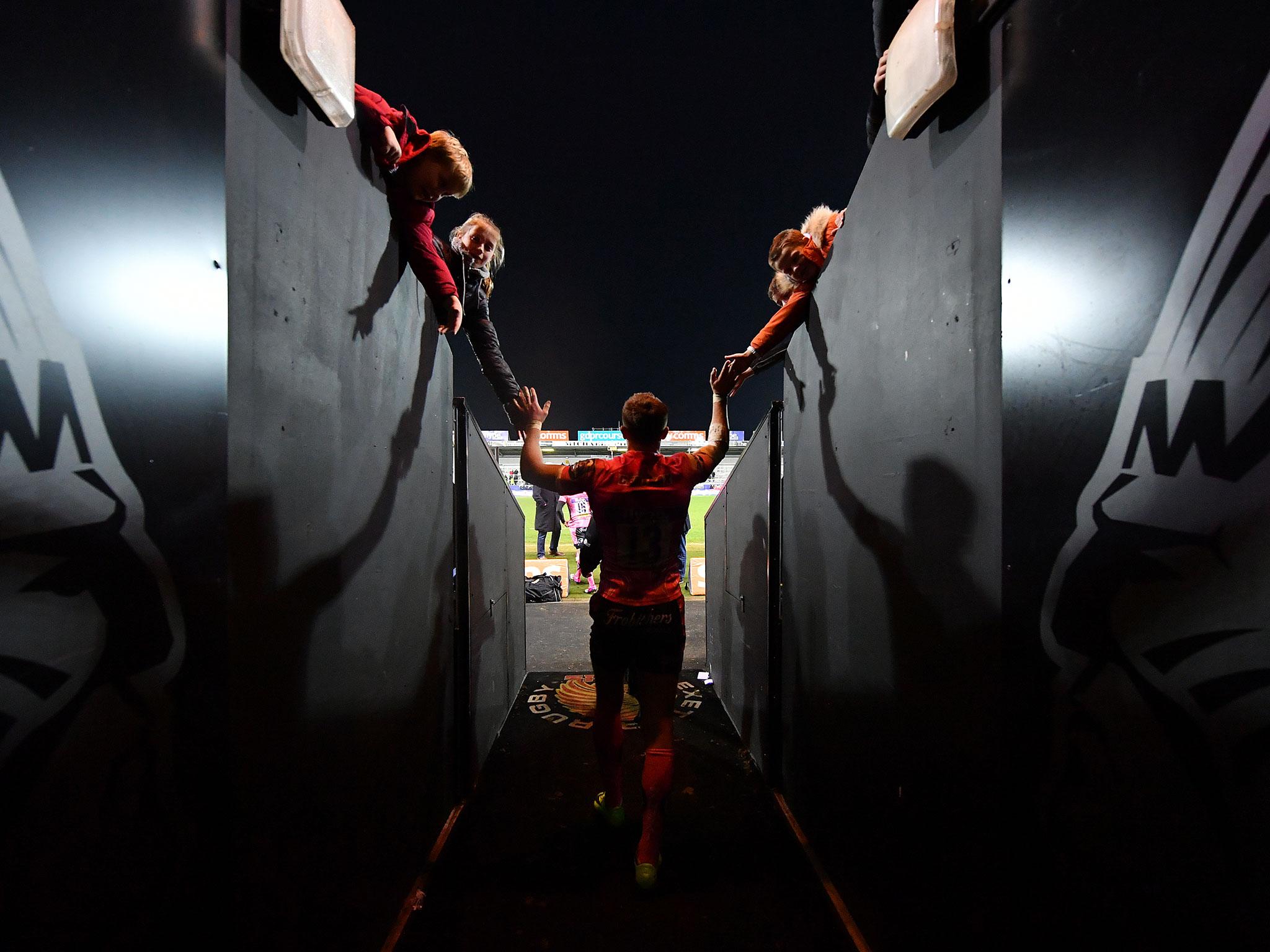Intensity and demands of the Premiership has seen England's clubs pay the price in Europe
For the first time ever, the last eight of the European Champions Cup could be without an English side. So how has it come to this?

Your support helps us to tell the story
From reproductive rights to climate change to Big Tech, The Independent is on the ground when the story is developing. Whether it's investigating the financials of Elon Musk's pro-Trump PAC or producing our latest documentary, 'The A Word', which shines a light on the American women fighting for reproductive rights, we know how important it is to parse out the facts from the messaging.
At such a critical moment in US history, we need reporters on the ground. Your donation allows us to keep sending journalists to speak to both sides of the story.
The Independent is trusted by Americans across the entire political spectrum. And unlike many other quality news outlets, we choose not to lock Americans out of our reporting and analysis with paywalls. We believe quality journalism should be available to everyone, paid for by those who can afford it.
Your support makes all the difference.By around 6.30pm on Sunday, England’s Premiership club class of 2017/18 could have made history for all the wrong reasons.
With Northampton Saints and Harlequins already shown the door while Bath, Wasps and defending champions Saracens need results elsewhere to go their way to have a prayer of qualification for the knock-out stages, only Exeter head into the weekend in control of their own destiny.
And even they face an uphill battle to qualify.
Rob Baxter’s men need an unlikely bonus-point win over winless Glasgow to be confident of their passage through to the last eight of the European Champions Cup as one of three best-placed runners up.
If the Chiefs lose on Saturday, Quins’ visit to La Rochelle on Sunday evening could be the last appearance by an English Premiership club in Europe’s top competition this season.
It is an unprecedented scenario. It’s also one which will have tournament organisers, club owners, television broadcasters, wider media and fans praying this does not materialise.
English clubs mean eyeballs, bums on seats, readers, audience. English clubs mean revenue. Lose them all before the knock-out stages and this year’s competition won’t just lose money, it will lose allure and a significant chunk of interest.
Should Exeter fail to beat Glasgow and results go against the other three English clubs with a remaining interest, this year’s tournament will be poorer in every sense.
So how did it come to this? The last time no English club qualified for the knock-out stages was in 1999. The difference then? English clubs weren’t playing as they boycotted the tournament in a dispute over voting rights. The last time? Never.

This year, they have participated but failed to produce the sort of high-octane consistency required to progress against Europe’s elite clubs. Throughout, English clubs have looked under-powered and tired. Even Exeter, defending Aviva Premiership champions, have twice been undone by Leinster.
There can be no denying the stark decline in performance by England’s top clubs in Europe this season.
Of course we can’t write off a competition on the back of one admittedly shocking season. In many ways, it is the very intensity and week in, week out demands of the Premiership which must have played a part in players struggling to cope on two fronts.
That Saracens have won the tournament for the past two seasons suggests the Premiership can equip teams to excel in the Champions Cup. But it’s a fine line between battle hardened and battle damaged and you sense most English club squads have crossed that threshold. Remember Jamie Roberts comparing the Quins dressing room to a “morgue” in October. Imagine what it looks like now.
One theory is that the relentless week-in-week-out physical toll taken on players in the Premiership is seeing English clubs pay a heavier price than other country’s clubs and regions.

Some will point to the French Top 14 club competition, every bit as attritional and confrontational as the Premiership, having La Rochelle, Clermont, Montpellier, Racing 92 and Toulon in contention to qualify for the Champions Cup last eight.
But France’s top players did not spend their summer on a six-week tour of New Zealand with the British & Irish Lions.
Top 14 squads, supported by huge playing budgets, are bigger and inhabited by fewer French-qualified players than English-qualified players in Premiership squads. Palpably, the French Top 14 does little to prepare players for the international game.
Factor in the lack of rest England’s top players were afforded over the summer before being thrown straight back into another 10-month domestic and European season and is it any wonder the clubs are physically broken.
Last Sunday’s Rugby Paper contained a fascinating interview with Bath coach Toby Booth in which he revealed some stark and potentially alarming figures which could go a long way to explaining why so many Aviva Premiership squads are physically broken.
World Rugby introduced a raft of law changes in August aimed at making the game “simpler to play and referee, as well as further promoting player welfare”.

There have been consequences. In Bath’s recent Premiership game against Exeter, Bath’s analysts recorded 1042 contacts. Last season’s highest number of 806 contacts in a match has already been surpassed on six separate occasions and we are barely half way through the season.
Overall, contacts have increased by 44 per cent this season, according to Bath’s figures, while the ball is now in play for almost seven minutes more per Premiership game than it was five years ago. All the while players are getting bigger, stronger, faster.
The RFU say their annual injury surveillance survey of Premiership clubs for the 2016-17 season, normally published around late January, will be published “in the next few months”.
It will make fascinating reading. Is there, as many of us suspect and common sense demands, a direct correlation between increased contacts and an increase in severity and volume of injuries?
For whatever reason, England’s Premiership clubs, despite all their resources, have been unable to compete in Europe this year.
The Premiership may be as intense and competitive as it ever has been but it comes at a price.
Join our commenting forum
Join thought-provoking conversations, follow other Independent readers and see their replies
Comments